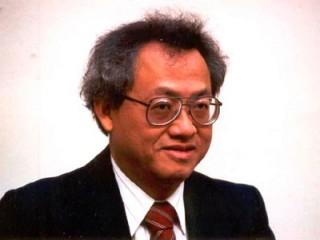
Leon Chua biography
Date of birth : 1936-06-28
Date of death : -
Birthplace : Philippines
Nationality : American
Category : Science and Technology
Last modified : 2012-01-03
Credited as : scientist, the inventor of Chua's circuit, Hypothesized the memristor
1 votes so far
Considered to be the "father of nonlinear circuit theory and cellular neural networks", he is also the inventor and namesake of Chua's circuit and was the first to conceive the theories behind, and postulate the existence of, the solid-state memristor. Thirty-seven years after he predicted its existence, a working solid-state memristor was created by a team led by R. Stanley Williams at Hewlett Packard.
A Chinese American, Chua and his fraternal twin sister grew up as members of the Chinese ethnic minority community in the Philippines under the reign of the Empire of Japan during World War II. He earned his BSEE degree from Mapúa Institute of Technology in the Philippines in 1959, then emigrated to the United States on a scholarship to the Massachusetts Institute of Technology, where he earned an MSEE degree in 1961. He then earned a Ph.D from the University of Illinois, Urbana-Champaign in 1964. His PhD thesis was entitled Nonlinear Network Analysis—The Parametric Approach. Over the ensuing years, he has received eight honorary doctorates.
Chua has four daughters; the eldest, Amy Chua (a Professor of Law at Yale University.), Michelle, Katrin (a professor at Stanford University), and Cynthia (Cindy).
Chua was a member of the faculty at Purdue University from 1964-1970 before joining Berkeley in 1971. His current research interests include cellular neural/nonlinear networks, nonlinear circuits and systems, nonlinear dynamics, bifurcation theory, and chaos theory. He is also the Editor of The International Journal of Bifurcation and Chaos.
Awards and honors:
-Doctor Honoris Causa from the École Polytechnique Fédérale de Lausanne, Switzerland (1983)
-Honorary Doctorate from the University of Tokushima, Japan (1984)
-Honorary Doctorate from the Technische Universität Dresden, Germany (1992)
-Doctor Honoris Causa from the Technical University of Budapest, Hungary (1994)
-Doctor Honoris Causa from the University of Santiago de Compostela, Spain (1995)
-Doctor Honoris Causa from the University of Frankfurt, Germany (1996)
-Doctor Honoris Causa from the Gheorghe Asachi Technical University of Iaşi, Romania (1997)
-Doctor Honoris Causa from the University of Catania, Italy (2000)
-IEEE Browder J. Thompson Memorial Prize Award (1967)
-IEEE Guillemin-Cauer Award (1972, 1985, 1989)
-IEEE W.R.G. Baker Prize Paper Award (1973), for the paper "Memristor: The Missing Circuit Element" in IEEE TRANSACTIONS on Circuit Theory, September 1971
-IEEE Neural Networks Pioneer Award (2000)
-IEEE Gustav Robert Kirchhoff Award (2005), For seminal contributions to the foundation of nonlinear circuit theory, and for inventing Chua's Circuit and Cellular Networks, each spawning a new research area.
-M. E. Van Valkenburg Award (1995 and 1998)
-IEEE Circuits and Systems Society Vitold Belevitch Award (2007), For seminal contributions to nonlinear circuit theory, the first mathematically proven physical implementation of Chaos (Chua circuit), the local activity principle as the root of complexity, the cellular neural/nonlinear network principle and basic theory, and the qualitative theory of complexity in 1D cellular automata.
-2010 Guggenheim Fellowship
















